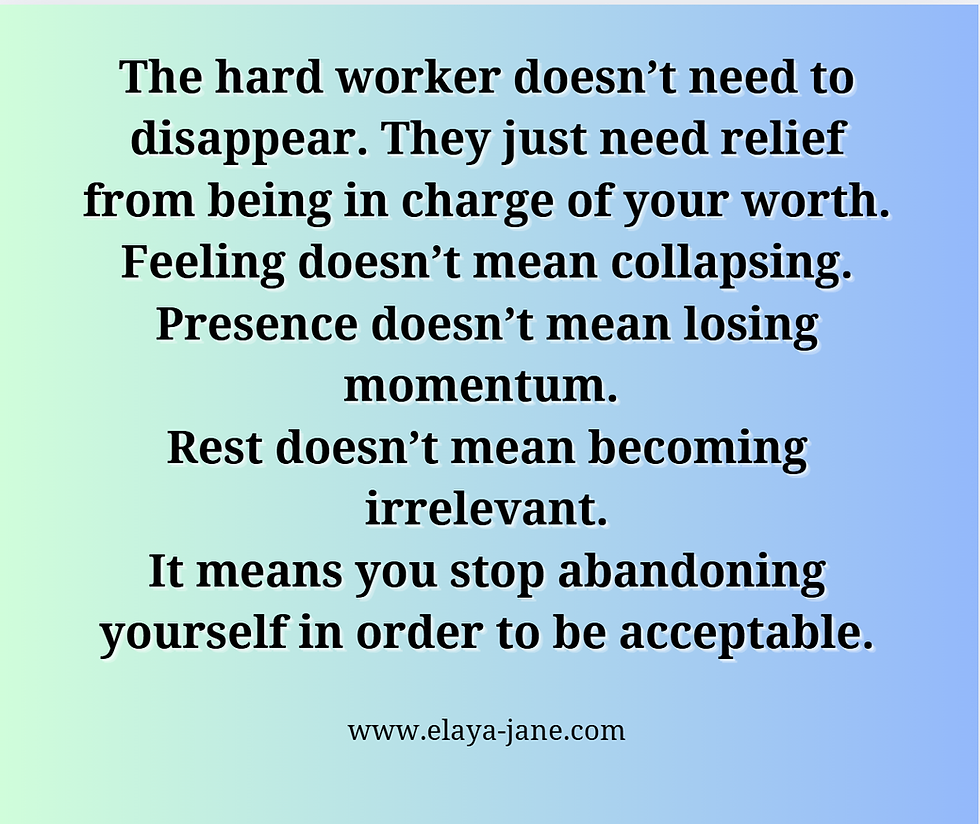Unconditional Love: A Love Without Loopholes
- Jane McGarvey
- Mar 24, 2025
- 4 min read
Unconditional love. It sounds poetic, right? Like something whispered in wedding vows or etched onto a rustic wooden sign in a homewares store. But when you get into the thick of it—when someone is frustrating, distant, or downright unkind—it’s easy to wonder: Is this even possible?
I think it is. But before we go any further, let’s break it down.
What is Unconditional Love?
Unconditional love is love without an asterisk. It’s not “I love you, but only if you do X” or “I love you unless you disappoint me.” It’s love that doesn’t withdraw when things get tough or when people don’t behave the way we wish they would. It’s a sturdy, unwavering, even when you’re annoying me right now kind of love.
That doesn’t mean unconditional love is boundary-less or blind. It doesn’t mean tolerating harm or sacrificing your well-being for the sake of another. But it does mean holding love in your heart without constantly weighing whether someone deserves it.
Can You Cultivate Unconditional Love If You’ve Never Truly Known It?
Absolutely. If you weren’t raised with the warm, unwavering embrace of unconditional love, it can feel foreign at first. But just like learning a new language or how to dance, you can teach yourself.
Start with self-compassion. Love yourself with no conditions attached, and suddenly, it’s a whole lot easier to extend that to others.

How to Love Without Condition
Here are ten ways to cultivate unconditional love (without becoming a doormat):
Detach Love from Behavior
Love the person, even if you don’t love their choices. You don’t have to approve of everything someone does to keep loving them.
Expect Imperfection
People will let you down. Not because they don’t love you, but because they are human. Expect it, and it won’t rock you as much.
Check Your Own Conditions
Are you withholding love until someone apologizes? Until they act the way you want? Sometimes our “love” is actually a contract in disguise.
Practice Empathy (Even When It’s Hard)
Try to understand why people act the way they do. Sometimes, their limitations in love have nothing to do with you and everything to do with their own wounds.
Choose Love Over Being Right
Would you rather be right or at peace? If your goal is to love, you don’t always have to prove your point.
Hold Boundaries Without Withdrawing Love
You can say, “I can’t be around this behavior” while still holding love in your heart for them. Make it clear that it is the behaviour that you don't love, not the person. Apply this also to your own self-love.
Love Yourself First
The more you accept yourself—flaws, quirks, and all—the easier it is to accept others as they are.
Forgive, But Don’t Forget the Lesson
Forgiveness isn’t about excusing someone’s behavior; it’s about setting yourself free from resentment. Every situation bring with it a lesson so that you can learn more about yourself and others. They are all simply experiences.
Release the Need for Reciprocation
Love because you choose to, not because you expect it in return. Sometimes, the other person isn’t capable of returning it in the way you want. Don't take the inability to love unconditionally as a personal rejection of your own unconditional love.
Stay Curious Instead of Judgmental
When people act in ways that seem unloving, ask, “What pain might be behind this?” instead of, “What’s wrong with them?” Don't make assumptions, ask them why they have felt to act in the way that they have.
Forgiving Those Who Have Loved You Harshly
This one is tricky. When someone we expected to love us unconditionally didn’t—a parent, a partner, a close friend—it can feel like a deep betrayal. The pain isn’t just about what happened; it’s about what should have been.
But holding onto that pain won’t change the past. Forgiveness isn’t about saying, “It’s okay that you hurt me.” It’s about saying, “I won’t let this pain shape how I love.”
Forgiving someone for their conditional love is really about reclaiming your own ability to love freely.
The Colors of Love: A Tool for Cultivating Unconditional Love
Imagine if we assigned colors to love in our hearts.
Green for romantic love, fresh and growing.
Pink for friendship, warm and soft.
Blue for wisdom-filled love, the kind that mentors and guides.
Gold for unconditional love, the steady, enduring glow that stays no matter what.
When you feel yourself getting frustrated, try visualizing love in a certain color. If someone is difficult, imagine sending them golden light, even if just for a second. It’s a small practice, but color can help shift our emotions, making love feel more tangible and less tied to momentary frustrations.
Final Thought: Love, No Loopholes
Unconditional love isn’t about being a saint. It’s about choosing love—messy, imperfect, human love—over and over again, even when it’s hard. It’s about giving love freely, not because people earn it, but because that’s who you choose to be.
And that? That’s a love worth cultivating. ❤️



Comments